Gas stations play a vital role in our daily lives, providing fuel for transportation and essential services for drivers. If you’re considering entering the gas station business, leasing a gas station can be an appealing option that offers both opportunities and challenges.
If you’re interested in this endeavor, we’re here to explore the expenses involved in leasing a gas station as well as the financial considerations of this unique business opportunity.
How Much Does It Cost to Lease a Gas Station?
Leasing a gas station encompasses a diverse range of factors that heavily influence the costs involved. From the station’s geographical placement and its physical dimensions to the specific lease terms, each element contributes to the final price tag.
Typically spanning a period of 3 to 5 years, these leases entail monthly rents calculated based on the station’s square footage. As a benchmark, the average leasing cost for a gas station in the United States stands at approximately $2,500 per month.
With this information, aspiring lessees gain a clearer understanding of the financial landscape and can navigate the realm of gas station leasing with greater confidence.

Factors That Contribute to the Cost of Leasing a Gas Station
Leasing a gas station involves a multitude of variables that influence the overall cost. From location-specific considerations to lease terms and operational expenses, it is essential to understand the key factors that significantly impact the financial aspects of gas station leasing.
Let’s delve into the crucial elements that can sway the overall cost, providing aspiring lessees with valuable insights.
Location
One of the primary determinants of the cost to lease a gas station is its location. Gas stations situated in high-demand areas, such as busy intersections or near highways, often command higher lease prices due to their potential for increased customer traffic.
Additionally, factors like population density, nearby businesses, and local competition also play a role in determining the location’s desirability and subsequent lease cost.
Size and Facilities
The size and facilities of a gas station can significantly impact the leasing cost. Larger stations with ample parking space, multiple fuel dispensers, convenience stores, car washes, and other amenities may come with higher lease prices due to their increased potential for revenue generation.
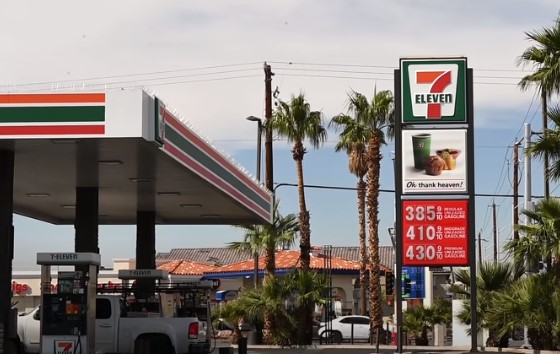
Moreover, the condition and age of the infrastructure, such as fuel tanks, pumps, and equipment, can also affect the cost, as older or outdated facilities may require maintenance or upgrades that lessees must consider.
Lease Terms
The terms outlined in the lease agreement directly influence the cost of leasing a gas station. Several key aspects of lease terms can impact the overall financial commitment:
Lease Duration
The duration of the lease, typically ranging from 3 to 5 years, can affect the monthly rent. Longer lease terms may offer more favorable rates, while shorter terms may come at a higher cost due to the increased risk and potential turnover.
Rent Structure
Gas station leases often involve a combination of base rent and additional fees or a percentage of sales. Lessees must carefully evaluate the rent structure outlined in the agreement to assess its impact on their financial obligations.
Renewal Options
The presence of renewal options provides lessees with the opportunity to extend the lease beyond the initial term. Having favorable renewal options can provide stability and potentially reduce the overall cost by avoiding the need for relocation or renegotiation.
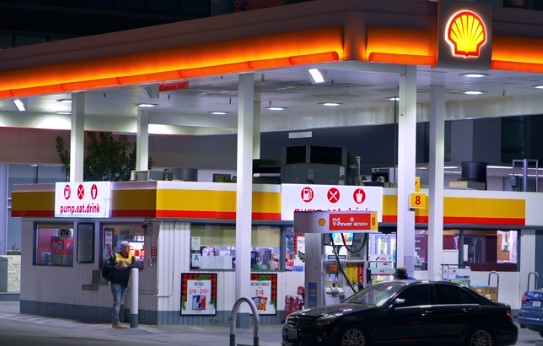
Operational Expenses
Beyond the lease cost, lessees must consider various operational expenses that can significantly impact the overall financial commitment:
Utilities
Gas stations require utilities such as electricity, water, and gas, which contribute to monthly expenses. The cost of these utilities varies depending on factors like location, usage, and local utility rates.
Maintenance and Repairs
Lessees are often responsible for the maintenance and repairs of the leased gas station. Regular upkeep, such as equipment maintenance, signage replacement, and property repairs, can add to the overall cost of leasing.
Insurance
Adequate insurance coverage is crucial for a gas station, protecting against potential liabilities and property damage. The cost of insurance can vary based on factors like location, coverage limits, and the lessee’s insurance history.
Taxes and Permits
Lessees should also consider the cost of taxes, permits, and licenses required to operate a gas station. These expenses can vary depending on local regulations and tax rates.

Market Conditions
The prevailing market conditions can also influence the cost of leasing a gas station. Factors such as fluctuations in fuel prices, economic conditions, and consumer demand for gasoline can impact the potential profitability of the gas station, which in turn affects lease prices.
It is essential to assess the market dynamics and consider potential risks and opportunities before committing to a lease.
Leasing a gas station involves a complex interplay of various factors that greatly affect the overall cost. By thoroughly understanding these influential elements, aspiring lessees can make informed decisions, navigate the leasing process effectively, and establish a solid foundation for their gas station business endeavors.
Is It Profitable to Own a Gas Station?
The profitability of owning a gas station can vary depending on several factors. While it can be a lucrative business in some cases, it is important to consider factors such as location, competition, operating costs, and market conditions. Profit margins on fuel sales are generally low, and the industry is subject to fluctuating oil prices.
However, additional revenue streams from convenience store sales, car wash services, or partnerships with other businesses can contribute to profitability. Careful market analysis and effective management strategies are crucial for maximizing profits in the gas station business.

How to Make Your Gas Station Profitable?
Operating a profitable gas station requires strategic planning, effective management, and a focus on maximizing revenue streams. In this guide, we will explore key strategies and actionable tips to help you make your gas station a profitable venture.
From optimizing fuel sales to capitalizing on convenience store offerings, below are various aspects that can contribute to your gas station’s financial success.
Competitive Fuel Pricing
One of the most crucial factors in attracting customers to your gas station is competitive fuel pricing. Conduct regular market research to stay aware of the prevailing fuel prices in your area and adjust your rates accordingly.
Offering competitive prices can entice customers to choose your station over competitors, increasing fuel sales and generating more revenue.
Efficient Inventory Management
Effectively managing your inventory is essential for profitability, especially for the convenience store segment of your gas station. Conduct regular stock assessments, monitor sales trends, and adjust your inventory accordingly.

Focus on stocking popular items and regularly introduce new products to keep customers engaged. By optimizing inventory levels and reducing wastage, you can enhance profitability and reduce costs.
Convenience Store Optimization
The convenience store attached to your gas station presents a significant opportunity for additional revenue. Ensure your store is well-organized, clean, and stocked with a diverse range of products that cater to customer needs.
Consider offering grab-and-go snacks, beverages, basic groceries, and other items that are in demand. Implement effective merchandising strategies, such as attractive displays and promotional offers, to drive sales and increase customer satisfaction.
Enhance Customer Experience
Providing an exceptional customer experience is key to fostering customer loyalty and increasing profitability. Train your staff to be friendly, knowledgeable, and attentive to customer needs.
Create a clean and inviting environment, both in the fueling area and the convenience store, to make customers feel comfortable and welcome. Implement customer loyalty programs, such as rewards or discounts, to incentivize repeat visits and build a loyal customer base.
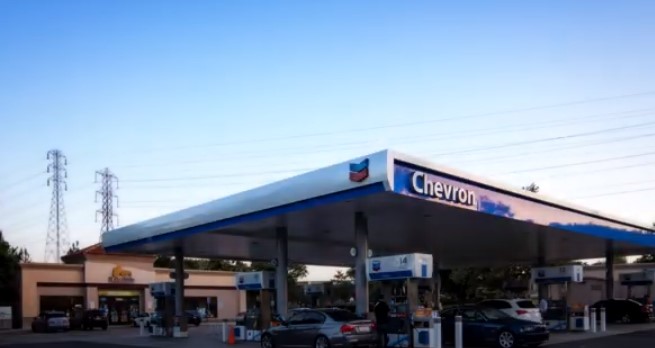
Implement Effective Marketing Strategies
Developing and implementing effective marketing strategies can significantly impact your gas station’s profitability. Utilize both traditional and digital marketing channels to promote your station.
Advertise special promotions, discounts, or exclusive offers through various mediums, such as billboards, radio, social media, and targeted online advertising. Leverage customer data to personalize marketing campaigns and enhance customer engagement.
Embrace Technology
Incorporating technology into your gas station operations can streamline processes, improve efficiency, and drive profitability. Invest in a reliable point-of-sale system that can handle transactions efficiently and provide detailed sales reports.
Implement customer loyalty programs and mobile payment options to cater to evolving consumer preferences. Consider installing modern fuel pumps with integrated technology, such as mobile payment capabilities and fuel price displays, to enhance the customer experience.
Focus on Operational Efficiency
Optimizing operational efficiency is essential for maximizing profitability. Regularly assess your processes and identify areas for improvement. Streamline fuel delivery and storage processes to minimize waste and maximize margins.

Implement energy-saving measures, such as LED lighting and programmable thermostats, to reduce utility costs. Train your staff on efficient operational practices to minimize errors and increase productivity.
Explore Additional Revenue Streams
To further boost profitability, consider exploring additional revenue streams beyond fuel and convenience store sales. For instance, you could offer car wash services, propane refills, or automotive services like tire repairs and oil changes.
Evaluate the needs and preferences of your target market and identify complementary services that can generate additional revenue while enhancing the overall customer experience [1].
Making your gas station profitable requires a multifaceted approach that encompasses various aspects of operations, customer experience, marketing, and efficient management. By implementing these strategies, you can position your gas station for success and drive profitability in a highly competitive market.
What Are the Things You Should Keep in Mind Before Leasing a Gas Station?
Leasing a gas station can be an appealing business opportunity for individuals looking to enter the fuel retail industry. However, before jumping into such a venture, there are several crucial factors to consider.
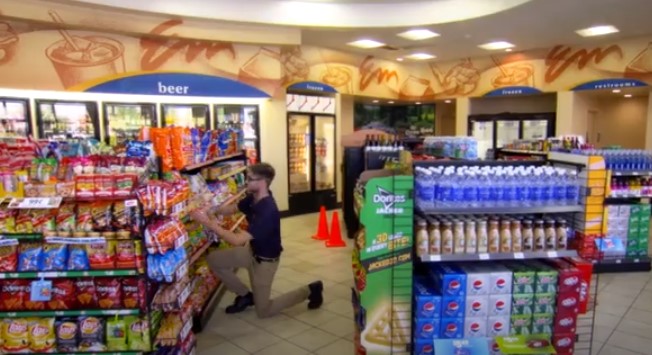
From understanding the lease terms to assessing market conditions and conducting due diligence, thorough research and careful planning are essential. Below are the key aspects that one should keep in mind before leasing a gas station.
Lease Agreement and Terms
The first and foremost consideration is thoroughly reviewing the lease agreement and its terms. This includes examining the duration of the lease, rental costs, renewal options, and any restrictions or obligations imposed by the lessor.
Understanding the terms of the lease will help you make informed decisions and avoid any surprises or potential conflicts in the future.
Location and Market Analysis
Choosing the right location for your gas station is critical for its success. Analyze the demographics, traffic patterns, and competition in the area. Consider factors such as proximity to highways, residential neighborhoods, and other businesses that could contribute to customer footfall.
Conducting a comprehensive market analysis will provide insights into the demand for fuel and potential revenue generation.

Fuel Supplier and Contracts
Researching and selecting a reliable fuel supplier is crucial when leasing a gas station. Contact different fuel suppliers and compare their terms, pricing, and service quality.
Evaluate the contractual obligations and delivery options provided by each supplier. Choosing the right fuel supplier will ensure a consistent fuel supply, competitive pricing, and excellent customer service.
Financial Considerations
Assessing the financial aspects of leasing a gas station is crucial to determine its profitability. Calculate the initial investment required for lease payments, property improvements, equipment purchases, and inventory.
Consider ongoing expenses such as utilities, insurance, maintenance, and marketing. Conduct a thorough financial analysis to estimate revenue projections and determine the breakeven point and potential return on investment.
Equipment and Maintenance
Evaluate the condition and functionality of the existing equipment at the gas station. Determine if any repairs or upgrades are necessary and factor in the associated costs.
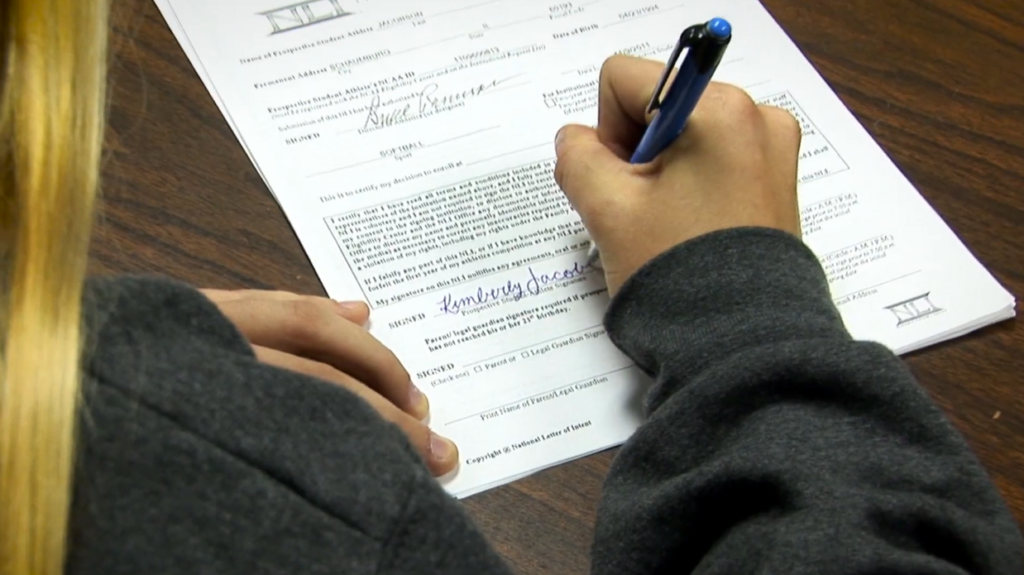
Consider the maintenance requirements of fuel pumps, tanks, POS systems, and other equipment. Additionally, understand the responsibilities for maintenance and repairs outlined in the lease agreement.
Branding and Marketing
Consider whether you want to operate as an independent gas station or as part of a branded franchise. Research and analyze the benefits and drawbacks of each option.
Franchises offer established brand recognition, marketing support, and operational guidance but may come with higher costs and contractual obligations.
If operating independently, develop a comprehensive marketing strategy to attract and retain customers.
Staffing and Operations
Determine the staffing requirements for running the gas station efficiently. Consider the number of employees needed for different shifts, their roles and responsibilities, and the skills required.
Factor in labor costs, including wages, benefits, and training expenses. Additionally, establish operational processes and procedures to ensure smooth day-to-day operations and exceptional customer service.
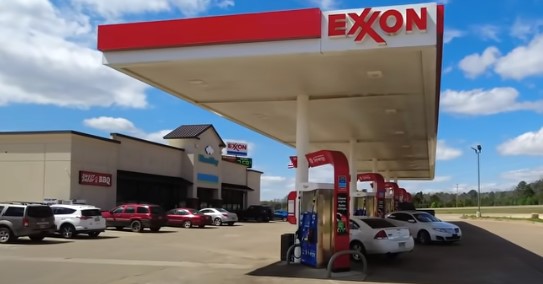
How Do Gas Station Owners Make Money?
Gas station ownership can be a profitable business venture for individuals interested in the fuel retail industry. Understanding how gas station owners make money is crucial for assessing the potential profitability of such an investment. Below are the various revenue streams that gas station owners typically rely on.
Fuel Sales
One of the primary sources of income for gas station owners is fuel sales. They purchase fuel from suppliers at wholesale prices and sell it to customers at retail prices.
The profit margin on fuel sales varies depending on factors such as location, competition, and market conditions. Gas station owners can adjust their fuel prices within market limits to optimize profitability while remaining competitive.
Convenience Store Sales
Many gas stations have convenience stores attached to them, which serve as additional revenue generators. These stores offer a range of products such as snacks, beverages, cigarettes, lottery tickets, automotive supplies, and more.
Gas station owners earn a margin on the sales of these convenience store items. The profit margin on convenience store sales is typically higher than on fuel sales, making it an important source of revenue.
Car Wash and Auto Services
Some gas stations offer additional services such as car wash facilities and auto repair services. These services can be a significant source of revenue, especially in high-traffic locations.
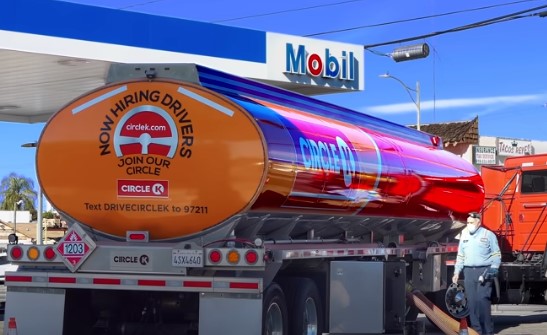
Gas station owners can charge customers for car washes, detailing services, oil changes, tire rotations, and other automotive maintenance and repair services. Providing quality services and ensuring customer satisfaction can help build a loyal customer base and increase revenue.
ATM and Vending Machine Revenue
Installing ATMs and vending machines at gas stations can provide an additional stream of income. Gas station owners can earn transaction fees from ATM withdrawals and receive a commission from vending machine sales.
These services offer convenience to customers while generating extra revenue for the gas station.
Rental Income
Gas station owners may lease out parts of their property to other businesses, such as fast-food restaurants, coffee shops, or auto repair shops. By renting out space, gas station owners can earn rental income, which contributes to their overall profitability.
However, it is important to consider the potential impact of these additional businesses on the gas station’s operations and customer experience.

Partnership With Fuel Companies and Franchises
Gas station owners may enter into partnerships with fuel companies or become franchisees of established fuel retail brands. These partnerships can provide access to favorable fuel pricing, marketing support, and operational guidance.
In return, gas station owners may pay royalties or fees to the fuel company or franchisor, which can impact their profitability. However, these partnerships also offer the advantage of brand recognition and customer trust, which can attract more customers and drive higher sales.
Conclusion
There are various factors that shape gas station leasing costs. From location and size to lease terms and operational expenses, understanding these elements is the key to embarking on a successful leasing adventure.
Get ready to navigate the financial landscape and make informed decisions with confidence.

